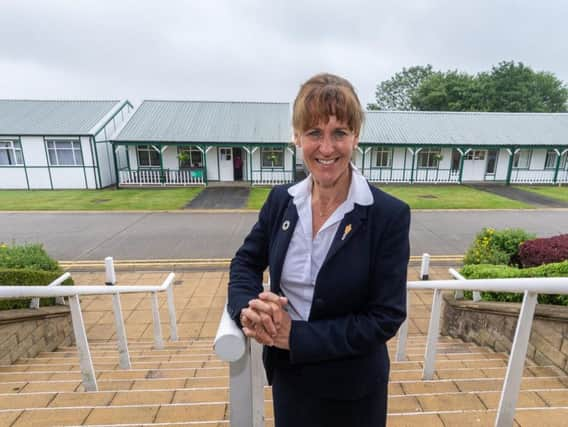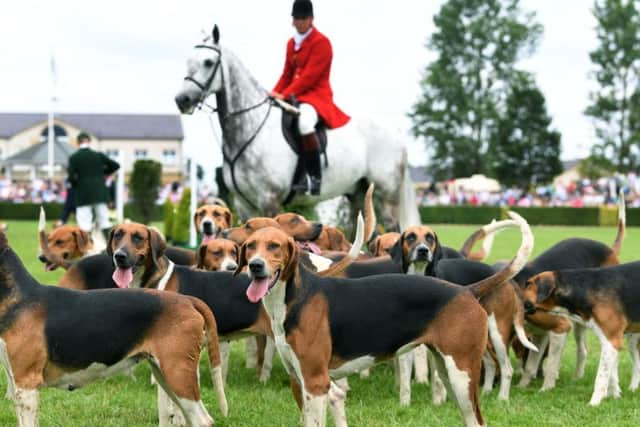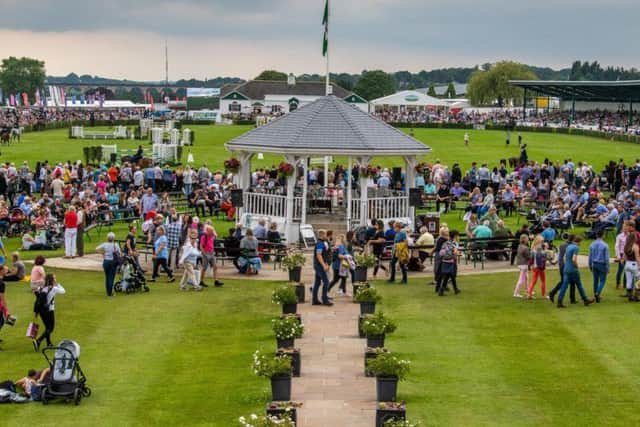Brexit deal could plunge farming into new frightening reality – David Behrens


The skies had cleared on Tuesday morning, in defiance of weather forecasts which insisted that they would not, but it was not enough to blow away the foreboding of the storm to come.
The industry, said the National Farmers’ Union president, Minette Batters, was in for a period of seismic change – but it did not know what the change would look like.
Advertisement
Hide AdAdvertisement
Hide AdThe cause of the uncertainty, of course, is the prospect of leaving the EU in three-and-a-half months’ time, without an exit deal. For farmers and for the food we all eat, the implications of this are far-reaching, and Ms Batters was not the only one to say so.


Her concerns, amongst others, were that the British market would be opened up to food from countries which produce it to a standard we would deem illegal. No deal, she said, would mean no protection.
The Farming Minister, Robert Goodwill, pointed to the “cliff edge” on which sheep farmers in particular would find themselves if their sector became exposed to the huge tariffs that a hard Brexit would bring.
Advertisement
Hide AdAdvertisement
Hide AdIt would impact not only upon exports but also on the upland environment, which depends on sheep for its management. Fewer sales would mean fewer sheep.


Mr Goodwill, who is the MP for Scarborough and Whitby, and himself a farmer, believes that putting Jeremy Hunt in Downing Street will be the best safeguard against such a scenario, but the question of whether enough of his fellow Tories agree, is – like the uplands – blowing in the wind.
Set against this unsettled climate, the chances of selling any farmer an enormous £140,000 tractor painted in Maserati Blue would seem unlikely. Yet the one on the show’s machinery lines, which for decades have been a passing parade of agricultural technology, told a different story.
Advertisement
Hide AdAdvertisement
Hide AdIts highest-profile admirer was the Duke of York, who, dwarfed though he was by the tractor’s back wheels, asked its supplier the obvious question: who could possibly justify the expense?
Investment brings higher yields and more productivity, he was told. That is true, but at a time in which none of the old certainties can be counted upon, it is a hard circle to square. Who’d be a farmer?
Quite a few people, it turns out. A lot of time and money is being ploughed into encouraging younger generations into agriculture, and the show offered an interesting insight into the attitudes that may shape farming in the future.
Hannah Jackson, a first-generation sheep farmer from the Wirral, whose calling cards are social media and her red hair, is a vocal advocate for the industry fighting its corner. This self-styled Red Shepherdess believes land workers should engage with the public through open dialogue about the peaks and troughs of their everyday lives.
Advertisement
Hide AdAdvertisement
Hide AdAnna Jones, a TV-producer-turned consultant, went further. Deal or no deal, she said, Brexit would bring transparency. The public would demand to know how its money was being spent; farmers would have to come clean about their subsidies.
This seemed to raise eyebrows even among the officials of the agricultural trust that had given her a £20,000 bursary to train farmers in representing themselves to the media – a practice at which protest groups are often more adept.
She and Ms Jackson have a point. The public is interested in farming – the 1.6m viewers who watched the first of Channel 5’s transmissions from the show this week bear this out. Farmers who embrace the spotlight will reap the fruits of their goodwill.
Advertisement
Hide AdAdvertisement
Hide AdThe TV coverage, incidentally, was not before time. The BBC could have done it years ago, and it is in its nature to now engage with its rival in a hubristic bidding war for the rights.
But that is the least of the questions to be decided before next year’s show.
The answers to the more significant ones will begin to emerge later this month when the new tenant moves into Downing Street, and the threat of a no-deal Brexit either evaporates in a cloud or rhetoric, or plunges agriculture into a new and frightening reality.